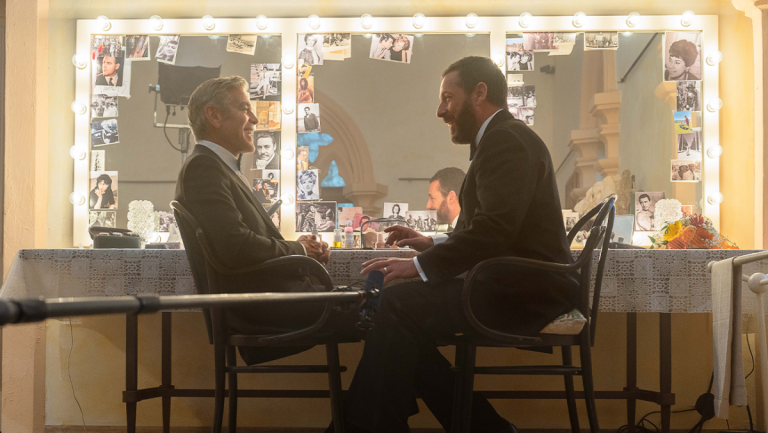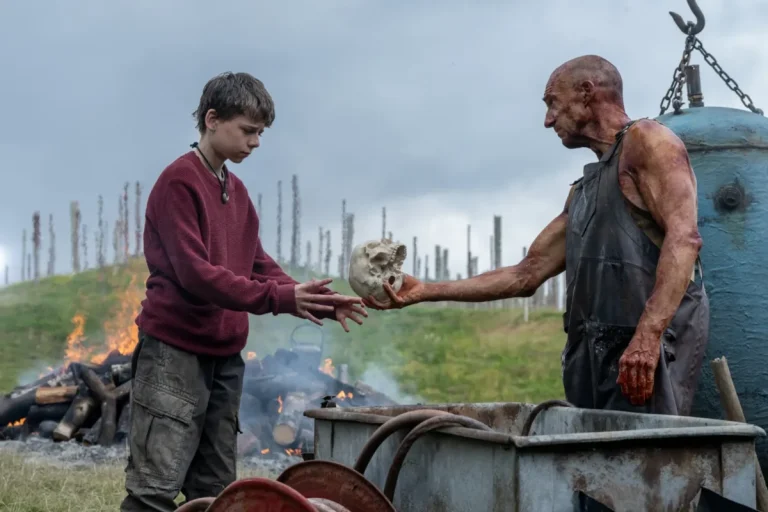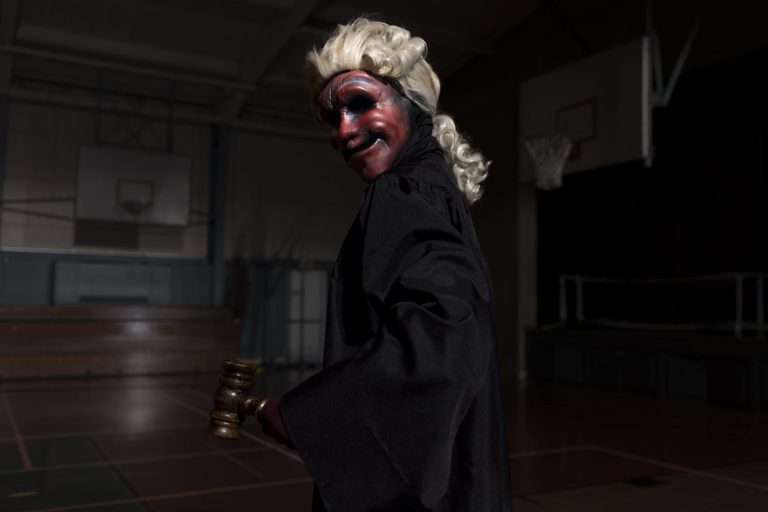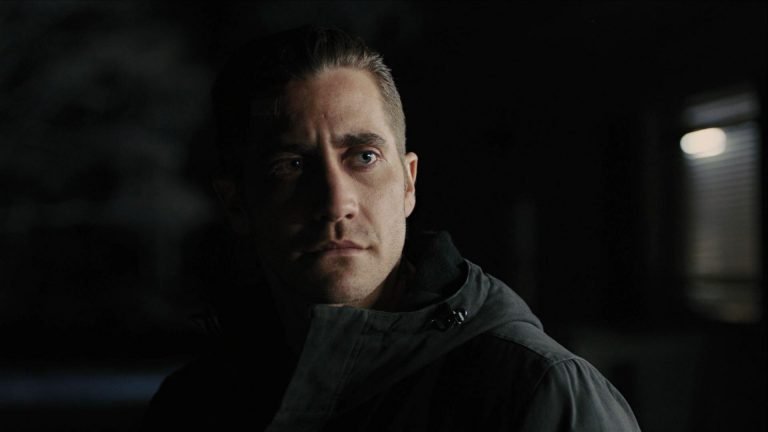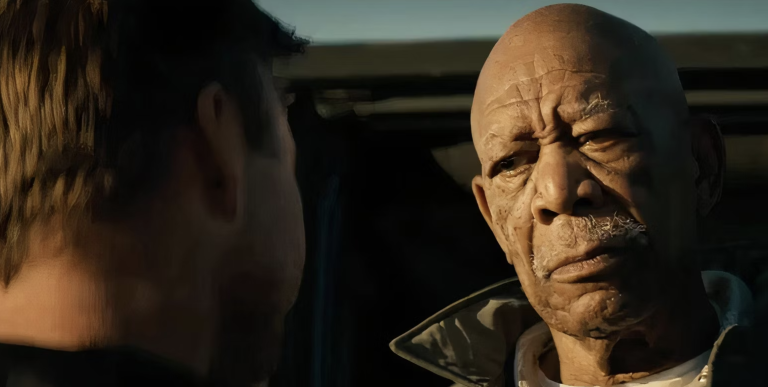Fernando Coimbra’s A Wolf at the Door (O Lobo Atrás da Porta, 2013) is not a whodunit but a why-dunit. From the moment Sylvia learns that her daughter Clara has vanished from school, the film shifts away from suspense toward the inexorable unravelling of obsession, betrayal, and revenge. What begins as the search for a missing child gradually reveals itself as something darker: the ordinary lies of domestic life metastasizing into extraordinary violence. At first, Clara’s disappearance appears to be a straightforward case of kidnapping. Yet as the investigation deepens, it becomes evident that the crime is less about chance and more about the poisonous aftermath of a secret affair. Coimbra traces the collision of three lives—Bernardo, Sylvia, and Rosa—drawn together and ultimately destroyed by desire and deceit.
Spoilers Ahead
A Wolf at the Door (O Lobo Atrás da Porta, 2013) Plot Summary & Movie Synopsis:
Why Does Bernardo Suspect Rosa?
When Clara goes missing, suspicion falls quickly on Rosa. Bernardo, under police questioning, admits that he had been having an affair with her. What begins as a confession of infidelity soon unravels into a full account of how their entanglement began: a chance meeting on a train, followed by seduction, secrecy, and eventually chaos. Bernardo is not an innocent man caught in circumstances. He is the architect of deception. He concealed his marriage, manipulated Rosa’s feelings, and when the affair threatened his domestic life, he resorted to abuse and betrayal. Rosa may have committed the act of kidnapping, but Bernardo’s choices lit the fuse.
Who is Rosa, and What Drives Her Actions?
Rosa is introduced as a mystery, a woman accused, reluctant to speak, and prone to spinning false stories to mislead the police. She initially invents ‘Bete,’ a fictional neighbor’s wife, claiming she was forced into the kidnapping by blackmail. But when pressed, her mask crumbles, and she admits the truth. Through flashbacks, Rosa emerges as a woman consumed by conflicting emotions. She is passionate, manipulative, and deeply wounded by betrayal. When she discovered Bernardo’s marriage, she didn’t walk away.
Instead, she inserted herself into his family’s life, befriending Sylvia under false pretenses, giving gifts to Clara, and lurking on the edges of the home that Bernardo swore she could never enter. Her actions are not simply about love; they are about possession. Rosa is unwilling to remain hidden, and when Bernardo violently rejects her, her obsession mutates into vengeance.
How Does Rosa’s Relationship with Bernardo Collapse?
The breaking point comes when Rosa reveals she is pregnant. Instead of taking responsibility, Bernardo tricks her. Under the guise of medical help, he arranges for an acquaintance to drug her and perform an abortion without her consent. This violation is the final betrayal. Rosa’s love, already unstable, corrodes into hatred. She is not only robbed of a future with Bernardo but also stripped of agency over her own body. Every subsequent act, from stalking Sylvia to the cruel phone-call prank, carries the weight of this fury. Bernardo, meanwhile, attempts to patch things up with Sylvia, but his effort at reconciliation is fragile. Rosa’s existence lingers like a shadow over their marriage.
Why Does Rosa Kill Clara?

The film answers this question not with neat justification but with the bleak logic of obsession. Rosa’s act is not impulsive; it is deliberate. She picks Clara up from school with practiced calm, leads her away, and eventually executes her with chilling detachment. Killing Clara is Rosa’s way of wounding Bernardo where he is most vulnerable.
Clara is not just Sylvia’s daughter; she is a living symbol of the life Bernardo denied Rosa, the child she could not keep because of his betrayal. By murdering Clara, Rosa claims the ultimate revenge: destroying the family that excluded her. Her cold demeanor matches the brutality of the act in the aftermath. She burns the child’s body and later confesses without remorse, refusing a lawyer, forgiveness, or excuses. For Rosa, the crime is not madness but completion.
What Role Does Sylvia Play in the Tragedy?
Sylvia is the bystander turned victim. At first, she is simply the mother of the missing child. But as Rosa’s backstory unfolds, it becomes clear that Sylvia is also the unwilling participant in Rosa’s vendetta. Rosa targeted Clara because Sylvia embodied the domestic stability Rosa could never have. Sylvia’s suffering is passive but profound. She is the one who must endure the unbearable, the knowledge that her husband’s infidelity directly led to her child’s death. The police investigation gives her no closure, only the brutal confirmation that her family was shattered by betrayal.
A Wolf at the Door (O Lobo Atrás da Porta, 2013) Movie Ending Explained:
Why Did Rosa Kill Clara?
Rosa killed Clara not out of sudden madness, but as the final act of revenge against Bernardo. Having been lied to, abused, and forced into a miscarriage, Rosa saw Clara as the child she could never have and the symbol of Bernardo’s betrayal. Her crime was not about ransom or gain but about making Bernardo suffer irreparably.
By the end, Rosa embraces her role as the ‘wolf,’ the predator who intrudes into the home. Her confession to police is chilling in its detachment: no remorse, no excuses, only the weight of her choices. The tragedy of “A Wolf at the Door” lies in its inevitability. Once love turned into possession and betrayal into hatred, the destruction of innocence is the only possible outcome. Clara’s death is the cruel reminder that in the crossfire of adult obsessions, it is the children who suffer most.
What Does the Ending Mean?
The final moments of “A Wolf at the Door” strip away any hope of redemption. Rosa’s chilling lack of remorse cements the film as a study of obsession turned monstrous. She does not deny her actions, nor does she seek to rationalize them. Her acceptance of punishment without regret underscores the story’s fatalistic message: once passion curdles into vengeance, destruction becomes inevitable.
For Bernardo, the tragedy is the price of selfishness. His lies and manipulations created a situation that could only end in loss. For Sylvia, it is the unbearable punishment of loving a man who brought catastrophe into their lives. The ‘wolf’ of the title is not Rosa alone but the destructive force of unchecked desire and deceit. The film suggests that once the wolf enters the door, once lies and betrayals cross into the sanctity of family, there is no locking it out.
